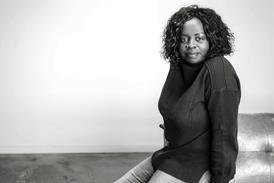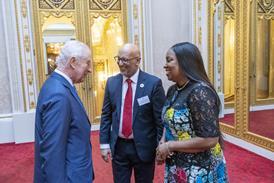Empowering women
From farming and selling produce to developing unused land, women in many parts of the world are seizing opportunities to improve the lives of their families and communities
Now I can feed my family
When Geraldina Semoy’s husband left their home in Mozambique to find work in South Africa, she held on to the hope that he would send her enough money to support their family. As a resident of the fifth poorest country in the world (where half of the nation’s 21 million people live on less than $1 a day), Geraldina was familiar with the scarcity and powerlessness that goes hand in hand with poverty. She often had the agonising job of sending her six children to bed hungry.
Sadly, her husband’s move to South Africa did little to improve life for Geraldina and her children. Despite having a job, it was poorly paid and, because of the high cost of living in South Africa, he was unable to save enough money to send home. Then, in 2006, Geraldina’s hopes were shattered when her husband returned from South Africa – with HIV/AIDS. He died shortly afterwards and Geraldina became the sole provider for her family.
But hope came to Geraldina’s community when a local organisation started to run agricultural training courses. Gradually, Geraldina’s life began to change, as she explains.
“I live on Josina Machel Island, 100 miles from our capital city, Maputo. After my husband’s death, I became the sole carer of my six children. My husband died from HIV/AIDS. The only good thing was that we were not stigmatised by his illness. So many people here have suffered the same thing.
I own a patch of fertile land, but commercial farming companies do not want to invest in it because it is small. I can’t travel long distances to sell what I grow because the fuel prices are too high.
After my husband’s death, I joined a group of people working on a large farm, but we received very little pay.
Then, in 2007, a local organisation (supported by the Methodist Relief and Development Fund or MRDF) began running training workshops showing people how to increase the income from our land. I took part and learnt how to grow crops such as sweet potato, onions, cassava and maize.
After the training ended, the organisation helped me to set up an association with other farmers and we registered with the government. This meant that we could access subsidised seeds, organic manure, tractors and water pumps to farm our land.
The local organisation also gave us hoes, watering cans and shovels. This is the first time that many of us have been able to use all of our land – we are able to plant more crops at the same time and sell more.
Now I grow enough not to worry about feeding my family. Now, I don’t have to ask my children to go to sleep hungry – and I can eat with them too.”
Learn more
The Methodist Relief and Development Fund (MRDF) works with small, local organisations in the world’s poorest countries, helping individuals and communities – regardless of race or religion - to transform their lives and become more self-sufficient.
For more information:
+ Write to: Methodist Relief and Development Fund, 25 Marylebone Road, London NW1 5JR
+ Tel: 020 7467 5132
+ E-mail: mrdf@methodistchurch.org.uk
+ Visit www.mrdf.org.uk
Our lives are so much better now
Women in Central Africa are among the poorest of the world’s poor. Their lives are difficult, demanding and often demeaning. Those with children are burdened with the virtually impossible task of finding food and education opportunities.
These women are also among the most vulnerable in society. They have no negotiation powers and often no-one to stand in their defence. They fall prey to all sorts of exploitation, abuse and often rape.
Such is the prevalence of HIV/AIDS and other infections, that older women often find themselves parenting their children's children.
Eladie Chipulu is one such person. Eladie is over 60 years old and her life has been extremely hard. She lives in Ndola, Zambia in a tiny mud-brick house with her grandchildren. Eladie’s own children have died.
“My house only has one room, which is used for everything. I have to sleep, eat and do most things in this tiny space.
Since my own children died, I have been caring for my grandchildren and we all live in this little room. There is no electricity or running water here and for many years the roof gave us no protection from the rain.
Recently, ZAPO-UK helped me to make repairs to the roof and so things are much better now. Before this, in the rainy season, we would sleep on wet blankets and I would have to dress the children in damp clothes. Throughout this time of heavy rainfall, the ground around my house, which is usually hard, becomes like a swamp. We have to stay inside without fresh water and food.
Before getting help from ZAPO-UK, the only money I could get in the dry season would come from selling water to other people in the township.
I've had many health problems and my eyesight is now failing.
I have many worries about my grandchildren's future. Until recently the children could not go to school because I was not able to afford the school fees, uniform and books. The children would have to go to bed hungry and they sometimes became very ill.
My life is much better now. ZAPO-UK has helped me to begin a small business buying and selling fruit and vegetables. They gave me a small loan and it's helped me so much.
I can now afford to feed my grandchildren and give money towards their schooling. I also get to visit the clinic where I receive good healthcare.
With the money I get from my business, I hope to move to a better house soon.”
Learn more
Eladie is one of many thousands of women being helped by a programme called Empowerment for Women, delivered by ZAPO-UK's on-the-ground partner, Community Concern Zambia (CCZ). The programme brings about a shift from a sense of worthlessness to dignity and self-respect, inactivity to productivity and dependency to economic freedom.
For more information:
+ Write to: 1 Friars Walk, Lewes, East Sussex BN7 2LE
+Tel: 01273 473365
+ Visit www.zapo-uk.org
I hope to be able to employ others
Kumari is 37 years old and lives with her husband, Lalith Samaranayaka, and their three school-age children in Monaragala, a poor, rural district in Sri Lanka.
For the last three years, Kumari has been tapping 180 rubber trees on their 20 acre land and selling the latex to the Firstlight project, which provides latex used to make Traidcraft’s fair trade rubber gloves.
The rubber trees were planted when Kumari’s parents-in-law owned the land, but much of the 20 acres still lie bare. Kumari had tried selling coffee, cocoa and pepper, but the income was seasonal, while rubber provides an income all year round. Because she couldn’t afford to pay high interest rates on bank loans, it looked as if her plans would come to nothing – until Dipped Products plc, which runs Firstlight, provided her with the materials that she needed to set up her own plant nursery.
“I tried to get the plants from the government and other places, but I had to fill in so many applications and I did not get any plants. Then finally I thought, in the future, I will make my own plants. I thought to get the loan from the bank, but with the interest rate I could not, because my children are at school and I cannot pay it back.
So DPL helped. In 2007-2008 I sold 18,000 plants and I have another 12,000 plants ready for sale.
I get up early morning, around 3 o’clock, and prepare the kids’ food, then leave about 5 o’clock to tap my trees. They are 2.5 kilometres away and my husband and I go by motorbike. We used to go by bicycle.
I come back home at 11.30 am and cook lunch. Afterwards I go to the fields to do nursery work and bring two ladies for help from the village. In the future, I hope another two or three people will work for me.
If I had not met Firstlight, I do not know where I would be. The staff are like family with us, our kids and everything.
In the early days I used to sell my [rubber] sheets to the local market and then there was no co-operation or any bond with them. We sold the sheets and the deal was over. Now, with Firstlight, we feel that the business relationship is more than that. When Firstlight is in business with us, the Monaragala farmers can be sustained.
Companies come and request that I sell to them, but I have refused because the relationship is not good.
If I was not a member of Firstlight, there would be no nursery because I went to so many bankers but they all refused, so Firstlight has helped me.
My dream is within a couple of years we will finish that 20 acres of planting. I also want to improve my home.
Our farmers are poor. Sometimes they have to ignore one meal. If you can sell the gloves then you are helping farmers to develop.”
Learn more
Like her neighbours, Kumari taps her trees at first light to get the best yield – a technique which gives the Firstlight project its name. Traidcraft’s rubber gloves range has been expanded and now includes outdoor and gardening gloves, as well as the original rubber gloves launched last year. The price paid includes a development premium to provide more benefits for Firstlight farmers and their communities.
For more information:
+Write to: Traidcraft PLC, Kingsway. Gateshead, Tyne & Wear NE11 ONE
+ Tel: 0845 330 8900
+ www.traidcraftshop.co.uk





























